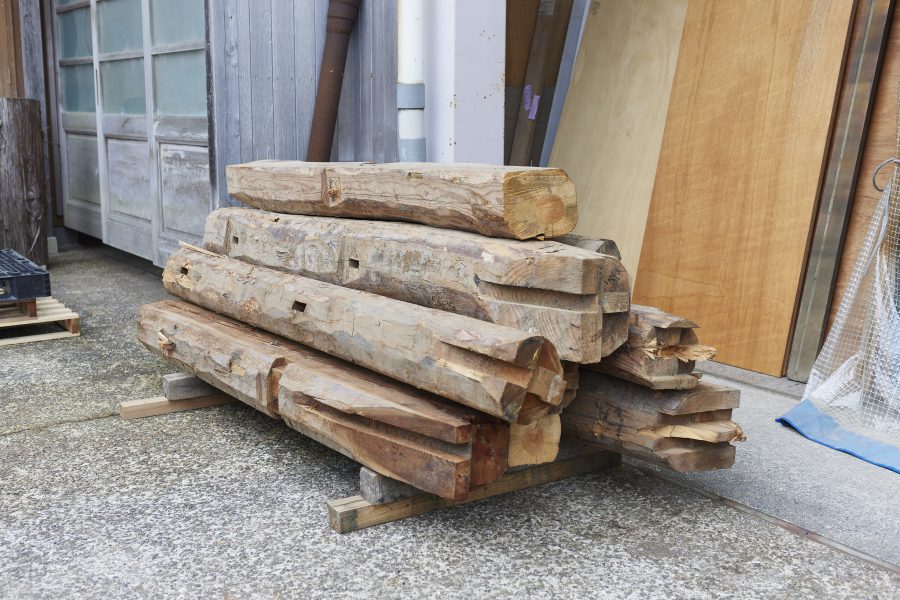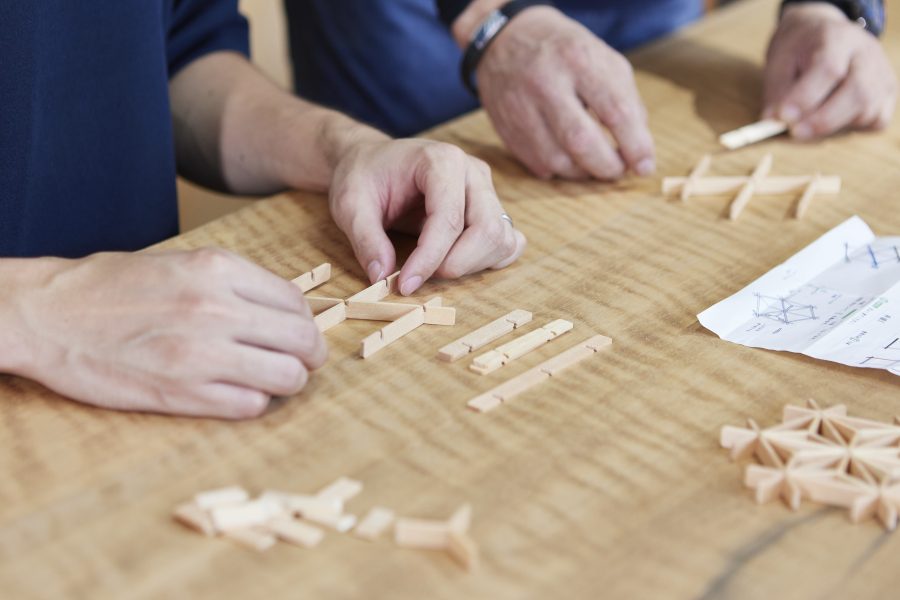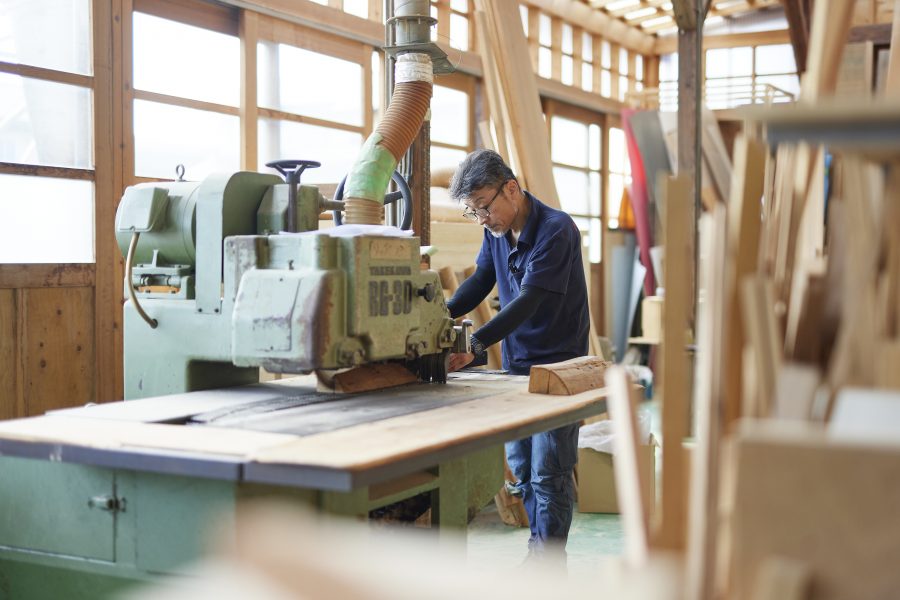
Mizokawa Co., Ltd. in Kyotango City was founded in 1960 as a store of furniture and fixtures. The company expanded into the furniture industry by making use of its technical capabilities. During the period of rapid economic growth, industrialization progressed and the number of furniture retailers selling only mass-produced products increased, but the company has continued to focus on manufacturing things that cater to the demand from users, and even today, the company receives orders from commercial facilities and hospitals in the Kinki region and produces custom-made furniture.
In making the stool, he is in charge of the wooden seat and legs. Initially, the idea was to use waste wood from old houses in the Kyotango region for the wooden part of the stool. As young people leave the area and the population ages, the old houses inherited from ancestors are becoming vacant and rotting away. Whenever he sees such a scene, Takasugi thinks, “All things have life in them and are here to play a part. They do not exist in isolation, but have been passed down from generation to generation. Old houses are filled with the thoughts of the people who have lived there. Instead of destroying and discarding them, I want those thoughts to be passed down by upcycling old wood.” Then, the 2024 Noto Peninsula Earthquake occurred on the New Year’s Day. Takasugi consulted with the project members and decided to use the waste wood from the disaster for the woodworking of the stool. He got in touch with Kanamori Alloy (headquartered in Kanazawa City), a company that has taken part in the Co-Design Challenge to create sign stands using disaster waste, and obtained some disaster waste materials that used to be pillars and beams of houses. “These pillars and beams may have been watching families gather for the New Year’s Day in Noto. We don’t want to let them be discarded because we don’t want to forget the life of those people. Their life still remains.” adds Takasugi.
The wooden samples are yet to be made. The seat design will be circular, and the cushion that Yamashita will embroider will be replaceable rather than being fixed, and the joints will be made using a construction method that makes use of a “wedge” and uses hardwood without nails. Takasugi says, “Wood is alive. Therefore, when we process waste wood from the disaster in Noto in Kyotango and use it in Osaka, the site of the Expo, it will change due to the difference in its environment.” For this reason, the surface of the wood is usually treated with urethane, but this time, he wants visitors to feel how the wood changes without any processing.
Both Mitsuba, Ltd. and Mizokawa Co., Ltd. are also planning experience-based events to deepen understanding of the manufacturing sites. Mitsuba, Ltd. will conduct a factory tour where participants can choose towels or other items and create original products embroidered with text data of their choice. Mizokawa Co., Ltd. will also conduct a factory tour and make coasters incorporating the Japanese woodworking technique “Kumiko,” allowing participants to experience how the technique can be used even when its use changes. They are also considering taking participants on a tour of “Yoshihara Irie Inlet,” a canal in Maizuru City that was the inspiration for the embroidery, and the giant “Yatsumatasugi” tree at Kirinomiya Shrine, a cultural asset designated by Kyotango City.
Yamashita added, “I would like to use the Expo as an opportunity to make embroidery useful in various fabric production regions, create textiles using embroidery, and deliver them to the world through interior decorations. There are abandoned villages in Kyotango, but there are people who are working together to survive. I hope that such activities will be remembered even after the Expo.”


Share this article


